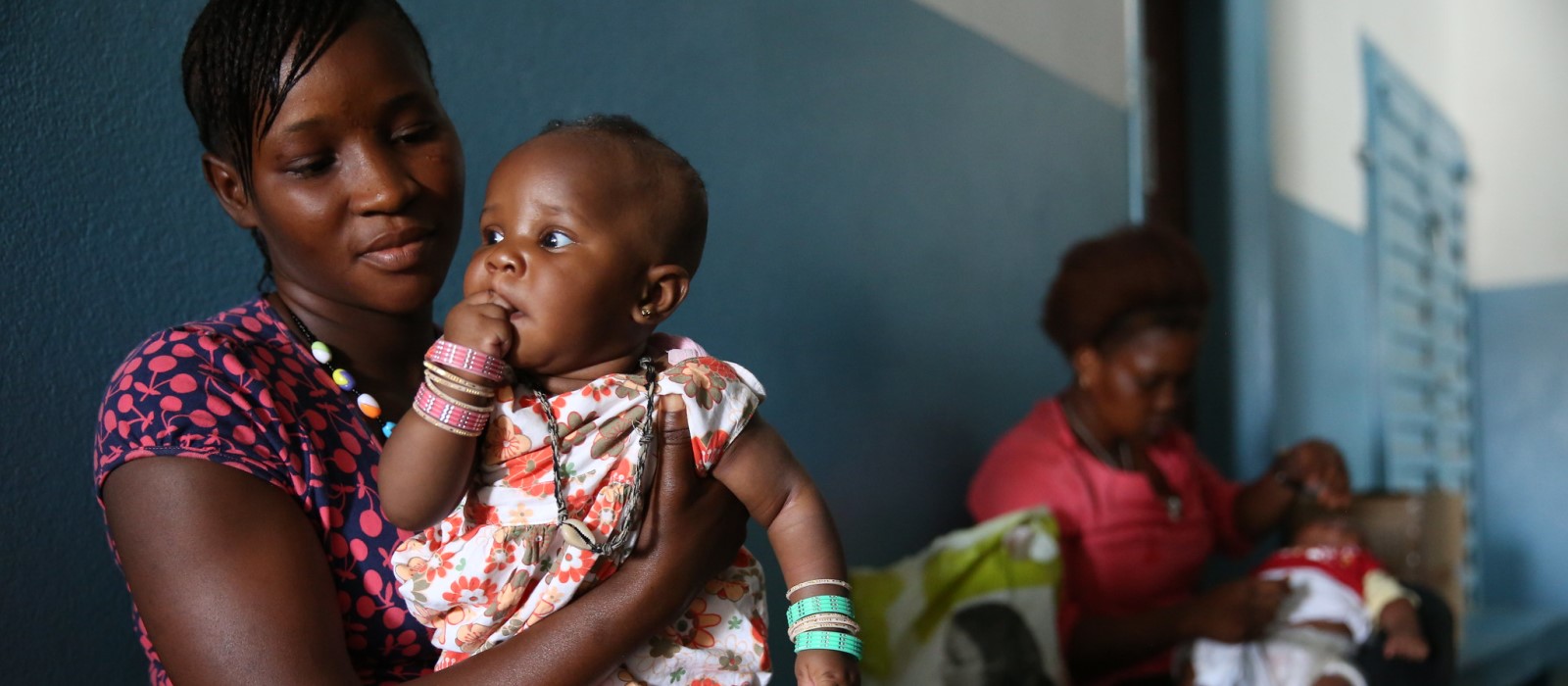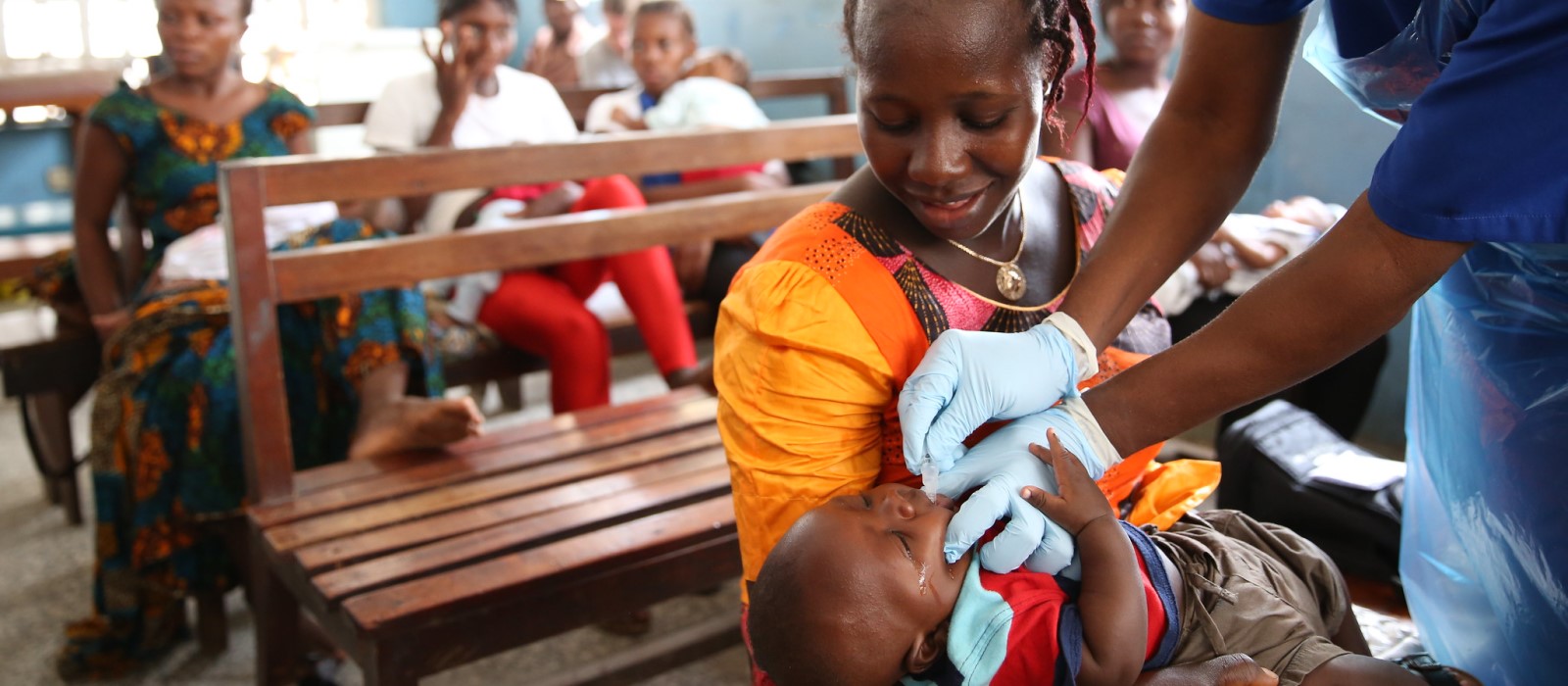Externalities and Social Influence in Childhood Immunization

Mother comforts her daughter after she received vaccinations in Freetown Sierra Leone. | Dominic Chavez/World Bank via Flickr
Policy Context
Despite significant improvements in access to childhood immunization in Sierra Leone, many children are not fully immunized. Although 94.7 percent of children receive the first vaccination BCG, only 57.5 percent of children receive all basic vaccinations by 12 months age. This study tests if education about externalities and social influence can increase timely vaccination behavior among parents.
Study Design
Researchers implement a randomized field experiment in communities in Northern Sierra Leone. They provide parents with information about the externality effects of vaccinations and vary the way in which the information is presented by making it known whether few or all parents in a community received the information.
Results and Policy Lessons
Findings have potential to influence governmental decision-making, since knowledge of health externalities may have a significant effect on people’s decision-making and bracelets are less expensive to produce and distribute than other incentives. Of substantive policy importance, researchers show that signals increase timely and complete vaccination at a cost of approximately 1 USD per child, with effects persisting 12 months after the roll out. Senior staff at the Ministry of Health and Sanitation in Sierra Leone have expressed intention to expand the program now that results have shown a significant improvement in mothers’ vaccination decisions for their children.


